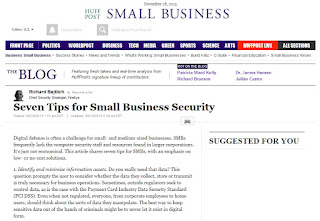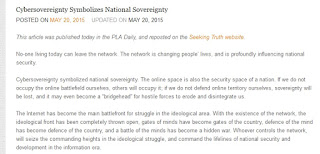A Brief History of the Internet in Northern Virginia

Earlier today I happened to see a short piece from the Bloomberg Businessweek "The Year Ahead: 2016" issue, titled The Best Places to Build Data Centers . The text said the following: Cloud leaders including Amazon.com, Microsoft, Google, IBM, and upstart DigitalOcean are spending tens of billions of dollars to construct massive data centers around the world. Microsoft alone puts its total bill at $15 billion. There are two main reasons for the expansion: First, the companies have to set up more servers near the biggest centers of Internet traffic growth. Second, they increasingly have to wrestle with national data-privacy laws and customer preferences, either by storing data in a user’s home country, or, in some cases, avoiding doing just that. The article featured several maps, including the one at left. It notes data centers in "Virginia" because "the Beltway has massive data needs." That may be true, but it does not do justice to the history of t...
















